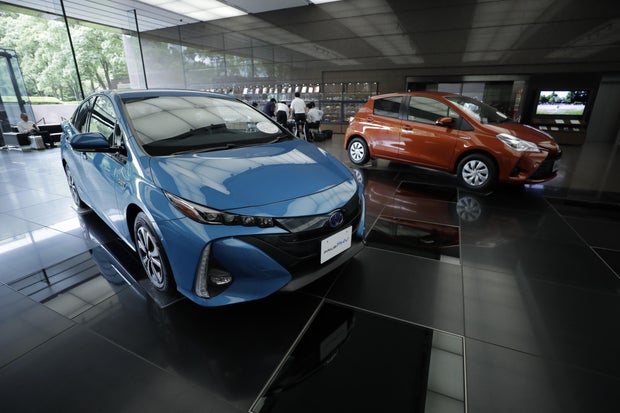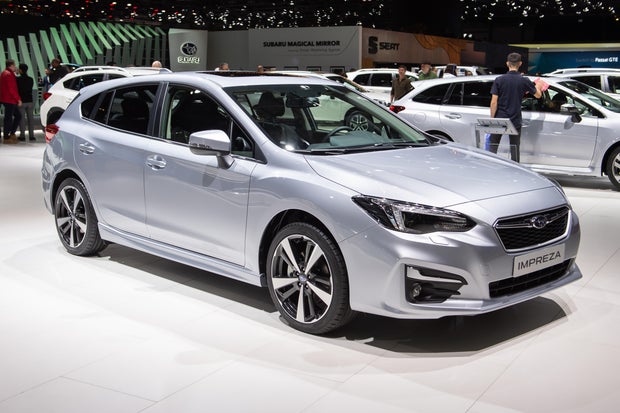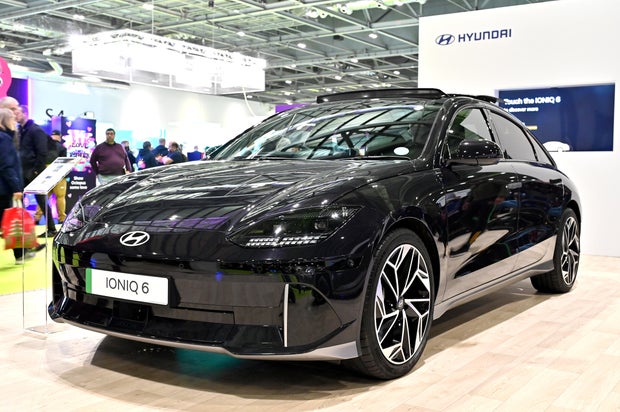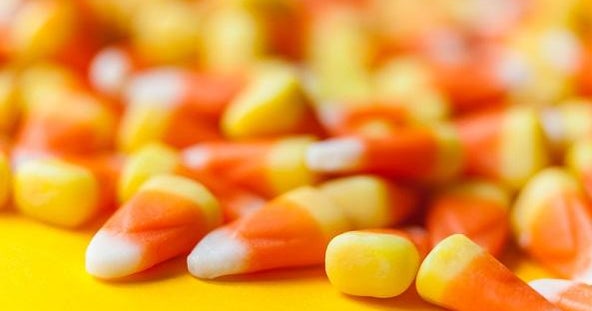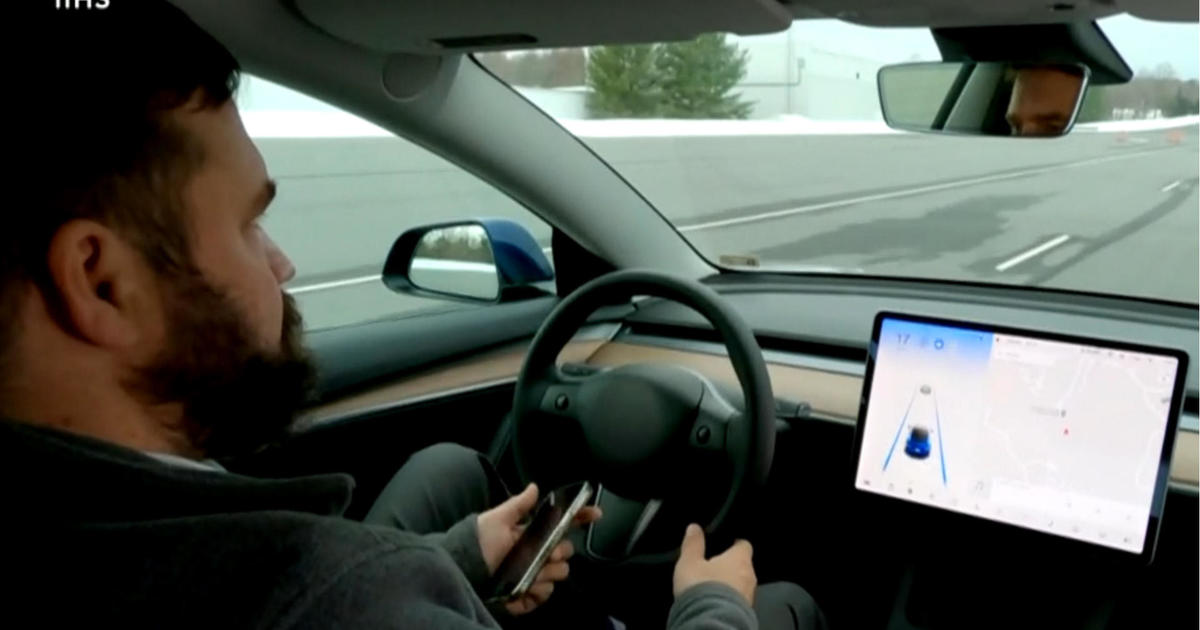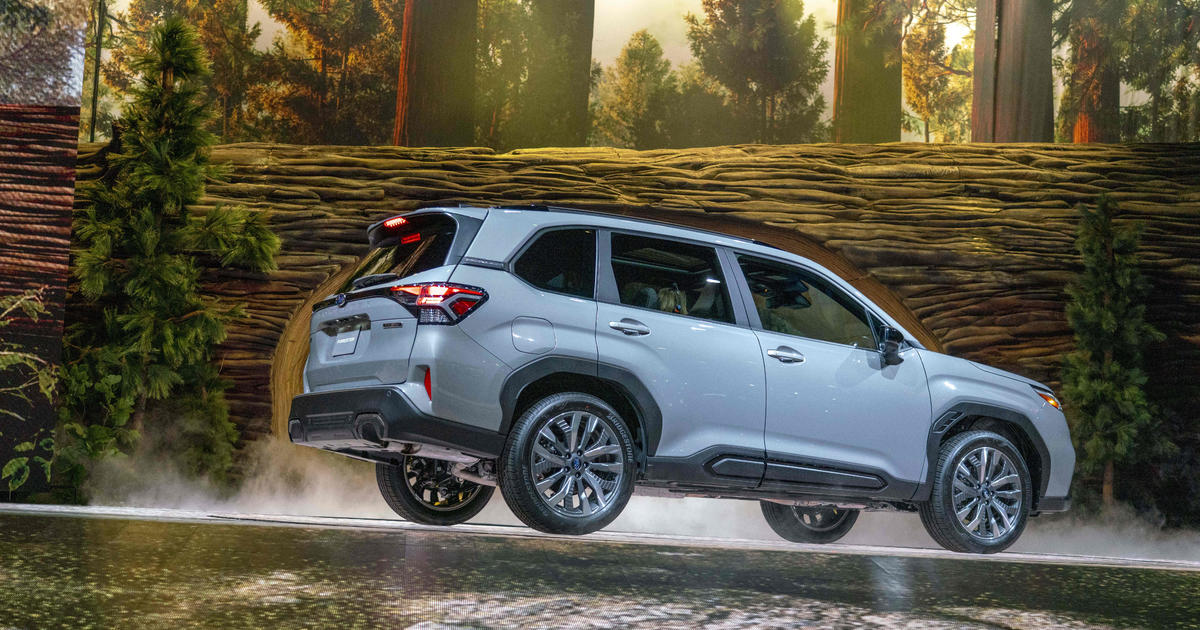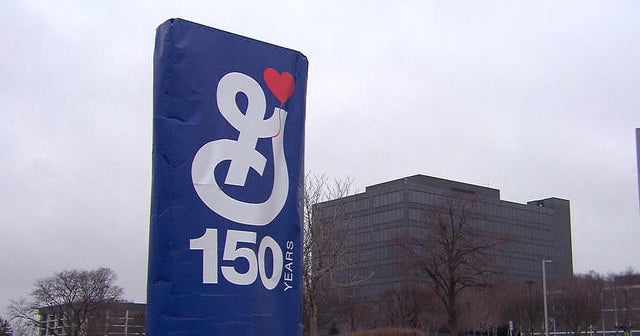CBS News
The best cars for teen drivers by price and safety, according to Consumer Reports

Teenagers might yearn to drive flashy sports cars or hulking SUVs, but none of these vehicles make the cut for Consumer Reports’ list of the best vehicles for young drivers.
That’s because Consumer Reports, along with the Insurance Institute for Highway Safety (IIHS), screened cars for safety with teen drivers in mind, meaning that any vehicle with excessive horsepower relative to weight was excluded. And large SUVs may seem safe, but they can be difficult to maneuver for inexperienced drivers in an emergency, noted Jennifer Stockburger, director of operations at Consumer Reports’ Auto Test Center.
This year’s list of the best vehicles for teens includes 58 used models ranging in price from $5,800 to $19,900. Consumer Reports notes that for the first time all the choices have a good or acceptable rating in the IIHS driver-side small overlap test, which rates cars for their performance when a front corner collides with another vehicle or an object like a tree.
The list also includes new 2024 vehicles, with 22 choices all rated as top safety picks by the IIHS and priced under $40,000.
“You really want to get the most reliable vehicle you can get for your money” when getting a car for a teen, Stockburger said.
Consumer Reports evaluated the cars on a range metrics: crash ratings; advanced driving assistance technology such as forward collision warning; reliability; and price.
Only one electric vehicle made the cut — the 2024 Hyundai Ioniq 6, which retails for $37,700. All new vehicles had to cost less than $40,000 to be included, given that parents typically also have price in mind when picking a car for their teen, Stockburger said.
“That’s the first time we’ve had an EV that made the list,” she added. “We expect we’ll see more EVs trickle on the list as they age a little bit” and come down in price.
The vehicles in all categories are listed according to price, from lowest to highest.
Best used vehicles
All the cars in the best choice category include standard automatic emergency braking systems that earn an “advanced” or “superior” rating from IIHS in the original vehicle-to-vehicle front-crash prevention test.
Small cars
Bloomberg
- Toyota Corolla sedan (2017 or newer) or hatchback (2019): $10,600
- Toyota Prius (2017 or newer): $13,800
- Mazda 3 sedan or hatchback (2021-22): $16,400
- Toyota Prius Prime (2017 or newer): $17,000
- Honda Civic sedan or hatchback (2021 or newer): $17,600
Midsize cars
- Toyota Camry (2018 or newer): $9,600
- Volvo S60 (2017, 2021): $10,200
- Volvo V60 (2017, 2021): $12,300
- Subaru Legacy (2019): $14,700
- Hyundai Sonata (2021): $17,200
- Honda Accord sedan (2020): $19,200
Large car
- Toyota Avalon (2017 or newer): $14,400
Small SUVs
- Chevrolet Equinox (2020, 2023): $13,800
- Kia Sportage (2020 or newer): $14,400
- Toyota RAV4 (2017 or newer): $14,700
- Hyundai Tucson (2020 or newer): $14,900
- Mazda CX-5 (2021-23): $17,600
- Lexus UX (2019-21): $18,100
- Honda CR-V (2020 or newer): $18,700
- Nissan Rogue (2021): $19,000
- Subaru Forester (2021 or newer): $19,000
- Mazda CX-30 (2022 or newer): $19,900
Midsize SUVs
- Volvo XC60 (2017): $12,100
- Hyundai Santa Fe (2019, 2020, 2023): $15,200
- Toyota Highlander (2017 or newer): $15,700
- Nissan Murano (2019, 2020): $15,900
- GMC Terrain (2020, 2023): $16,100
- Ford Edge (2020 or newer): $16,700
- Lexus NX (2018-21): $17,100
- Infiniti QX60 (2019): $17,800
- Mazda CX-9 (2020, 2022): $18,800
Minivan
- Toyota Sienna (2018-20): $19,100
Good choices for used vehicles
Robert Hradil / Getty Images
Small cars
- Mazda 3 sedan or hatchback (2014-17; built after October 2013): $5,800
- Ford C-Max Hybrid (2015-16): $7,100
- Honda Civic sedan (2014): $7,900
- Toyota Prius (2014-16; built after November 2013): $9,400
- Subaru Impreza sedan or wagon (2019-20): $13,200
Midsize cars
- Mazda 6 (2015-17): $8,400
- Toyota Camry (2014-17; built after December 2013): $9,000
- Toyota Prius v (2015-17): $10,200
- Honda Accord coupe or sedan (2015-17): $10,500
- Subaru Legacy (2017-18): $11,600
- BMW 3 series (2018): $13,800
Large car
- Toyota Avalon (2015-16): $12,600
Small SUVs
- Mazda CX-5 (2016): $10,100
- Hyundai Kona (2018-19): $11,000
- Honda CR-V (2015-19): $11,400
- Chevrolet Equinox (2018-19): $11,600
- Honda HR-V (2017-22; built after March 2017): $11,600
- Toyota RAV4 (2015-16; built after November 2014): $12,000
Midsize SUVs
- Nissan Murano (2016): $9,900
- Toyota Highlander (2014-16): $11,700
- Lexus NX (2015-17): $12,100
- GMC Terrain (2018-19): $12,700
- Acura RDX (2016): $13,500
- Mazda CX-9 (2018): $14,200
Minivans
- Toyota Sienna (2016-17): $12,600
- Honda Odyssey (2017): $14,400
New cars: Recommended 2024 models for teens
Getty Images
Small cars
- Subaru Impreza: $23,400
- Mazda 3 sedan or hatchback: $24,300
- Toyota Prius: $28,300
- Toyota Prius Prime: $33,600
Midsize cars
- Toyota Camry: $26,900
- Honda Accord: $28,200
- Subaru Outback: $29,300
- Hyundai Ioniq 6 (except dual-motor): $37,700
Small SUVs
- Mazda CX-30: $25,700
- Kia Sportage: $27,300
- Hyundai Tucson: $27,800
- Honda CR-V: $29,700
- Mazda CX-50 (built after August 2023): $31,200
- Lexus UX: $35,300
Midsize SUVs
- Subaru Ascent: $35,000
- Kia Telluride: $36,300
- Hyundai Palisade: $37,000
- Honda Pilot: $37,200
- Mazda CX-90: $38,800
- Lexus NX: $39,600
Minivan
Pickup
- Hyundai Santa Cruz: $27,500
CBS News
Trump makes more Cabinet picks but some top economic posts remain unfilled

Watch CBS News
Be the first to know
Get browser notifications for breaking news, live events, and exclusive reporting.
CBS News
Open: This is “Face the Nation with Margaret Brennan,” Nov. 24, 2024

Watch CBS News
Be the first to know
Get browser notifications for breaking news, live events, and exclusive reporting.
CBS News
Popular gluten free tortilla strips recalled over possible contamination with wheat

A food company known for popular grocery store condiments has recalled a package of tortilla strips that may be contaminated with wheat, the U.S. Food and Drug Administration said Friday. The product is meant to be gluten-free.
Sugar Foods, a manufacturing and distribution corporation focused mainly on various toppings, artificial sweeteners and snacks, issued the recall for the “Santa Fe Style” version of tortilla strips sold by the brand Fresh Gourmet.
“People who have a wheat allergy or severe sensitivity to wheat run the risk of serious or life-threatening allergic reaction if they consume the product,” said Sugar Foods in an announcement posted by the FDA.
Packages of these tortilla strips with an expiration date as late as June 20, 2025, could contain undeclared wheat, meaning the allergen is not listed as an ingredient on the label. The Fresh Gourmet product is marketed as gluten-free.
Sugar Foods said a customer informed the company on Nov. 19 that packages of the tortilla strips actually contained crispy onions, another Fresh Gourmet product normally sold in a similar container. The brand’s crispy onion product does contain wheat, and that allergen is noted on the label.
U.S. Food and Drug Administration
No illnesses tied to the packaging mistake have been reported, according to the announcement from Sugar Foods. However, the company is still recalling the tortilla strips as a precaution. The contamination issue may have affected products distributed between Sept. 30 and Nov. 11 in 22 states: Arizona, California, Colorado, Florida, Georgia, Iowa, Idaho, Illinois, Indiana, Maryland, Maine, Michigan, Minnesota, North Carolina, New Jersey, Ohio, Oregon, Pennsylvania, Texas, Utah, Virginia and Washington.
Sugar Foods has advised anyone with questions about the recall to contact the company’s consumer care department by email or phone.
CBS News reached out to Sugar Foods for more information but did not receive an immediate reply.
This is the latest in a series of food product recalls affected because of contamination issues, although the others involved harmful bacteria. Some recent, high-profile incidents include an E. coli outbreak from organic carrots that killed at least one person in California, and a listeria outbreak that left an infant dead in California and nine people hospitalized across four different states, according to the Center for Disease Control and Prevention. The E. coli outbreak is linked to multiple different food brands while the listeria outbreak stemmed from a line of ready-to-eat meat and poultry products sold by Yu-Shang Foods.


